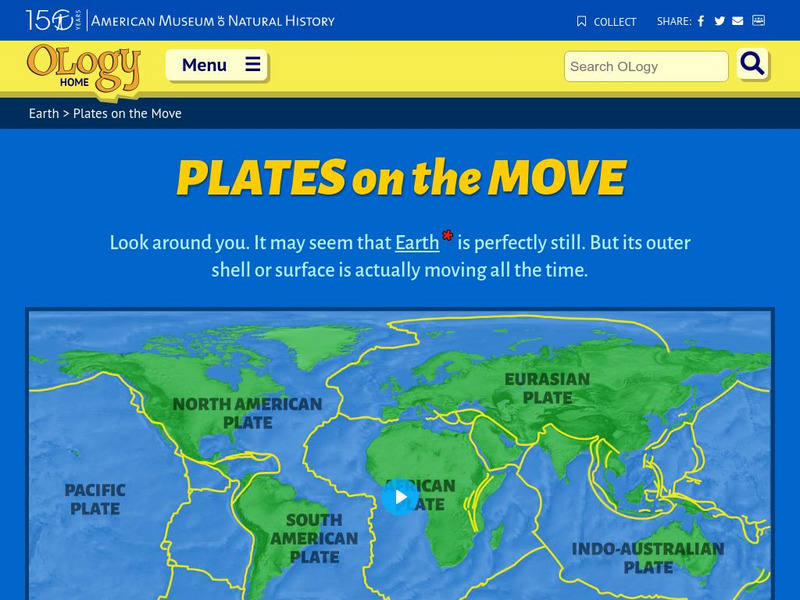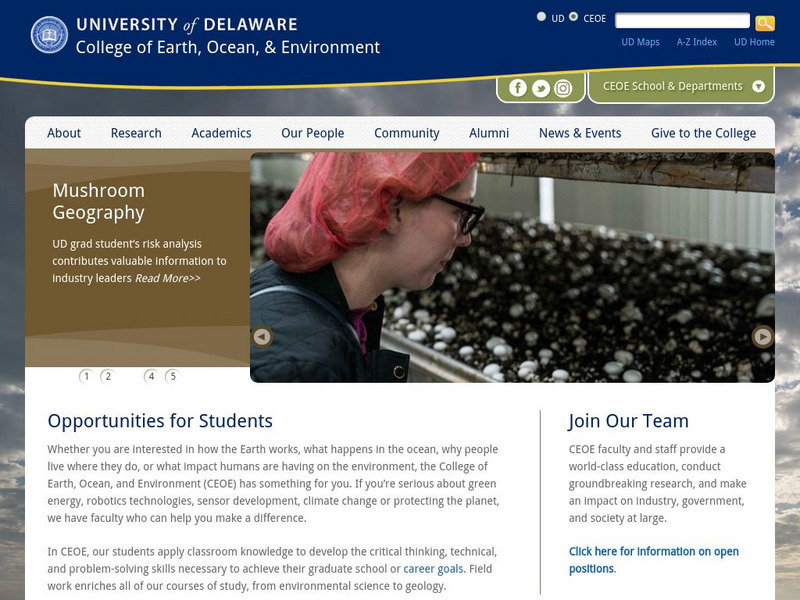Science Friday
How Boulders Are Born
Want your class to rock? Then try this boulder activity. Pupils learn about a specific boulder field and use edible materials to demonstrate the geological processes that formed this unique feature. Weathering, erosion, and mass...
Curated OER
Science Test-Grade 5
In this grade 5 science test activity, 5th graders complete a 30 question multiple choice quiz covering a variety of grade 5 concepts.
Curated OER
Earthquakes
Students observe the melting of ice. In this phase change lesson, students observe ice as it melts. They discuss the process and create a Venn diagram comparing water and ice.
Curated OER
Understanding the Indoor Environment:Preventing and Fixing Indoor Air Pollution
Pupils explore air pollution. In this environmental studies lesson, students work with a partner to create a Venn diagram comparing and contrasting possible solutions to prevalent indoor air pollution problems. Pupils discuss...
Curated OER
It's Just a Phase
Sixth graders are introduced to the correct terminology for the phases of the moon and arrange picture cards in the correct order. They use flashlights and Styrofoam balls to illustrate the phases of the moon. They write science journal...
Curated OER
Science: What Is a Barometer?
Fourth graders discover how barometers help to predict the weather. Using newspapers, they examine the weather forecast and determine the meaning of high and low as they pertain to pressure. After making cluster diagrams, 4th graders...
Curated OER
It's Just a Phase
Learners describe the phases of the moon and play a game with moon phase cards.
Curated OER
Earthquakes
Sixth graders explain that earthquakes are sudden motions along breaks in the crust called faults. They list the major geologic events including earthquakes, volcanic eruptions and mountain building, which are the result of crustal plate...
Curated OER
Shadows
First graders measure how a shadow changes over the course of a day. They write about what they would do if they lost their shadow, and make silhouettes of themselves. Students make up a shadow dance and read stories about shadows.
Curated OER
Earthquakes
Sixth graders explore reasons for earthquakes. They discuss and describe the types of faults. Using the internet, 6th graders research a specific location of a former earthquake. They describe the damage, magnitude, the epicenter,...
Curated OER
Forces in Action
Students investigate different forces and draw arrows to signify specific directions of force. Students are then shown a brick and they are asked to draw a diagram which will include labels for the forces that are acting on the brick....
Curated OER
Water, Water, Everywhere and Always on the Move
Learners create their own water cycle in a terrarium. In this water cycle lesson, students research the water cycle and complete a worksheet using the Internet. They create a water cycle of their own in a jar with stones, sand, soil, and...
Curated OER
Perpetual Motion
Students discuss movement of air currents and then experiment to create visible models of air currents. Students connect the model to weather patterns.
Curated OER
Distance And Parallax
Students will determine distances to nearby stars using parallax. In this Astronomy lesson plan, students will use a web program, trigonometry, and sketches to determine the distance of stars.
Curated OER
GIS and Agriculture
Students are introduced GIS systems and how they operate. Using a GIS system, they locate and map the various types of agricultural products grown in Oregon. They rank each county based on the amount of agricultural products produced and...
Curated OER
Which Boundary Am I?
Sixth graders find 12 statements which describe the characteristics of the three boundary types, arranged in random order. Their task is to read each statement, and then CUT and PASTE it to the the appropriate boundary icon.
Curated OER
Circuits And Conductors
Learners predict the common classroom items, such as paper clips, chalk, keys, or erasers, that will be good conductors in a circuit. They build circuits using a variety of circuit diagrams to test their predictions.
Curated OER
What's In A Name
Second graders read Chrysanthemum by Kevin Henkes. They then discuss where various names come from. They create a individualized biopoem and publish it on word processing software. Their poems are compiled into a class book and presented...
American Museum of Natural History
American Museum of Natural History: O Logy: Plates on the Move
Find an interrelated set of tools--maps, animations, diagrams, photographs, and text--to help you understand tectonic plates and how they move.
Other
University of Delaware: Plate Tectonics
This site is a very simple overview of plate tectonics. It includes a map of all the major plates and a diagram of the layers of the earth.
PBS
Pbs Learning Media: Earth's Water Movements
The paths that water can take through Earth's systems are many and complex. Examine the following diagram from NASA depicting the water cycle. Studying the water cycle is important because changes in the water cycle affect all parts of...
Center for Educational Technologies
Earth Science Explorer: The Rock Cycle
This one-page explanation of the rock cycle contains a very helpful diagram and useful explanatory notes. Site explains how rocks are made and broken down.
US Geological Survey
Usgs: The Water Cycle
Learn about the movement of water from Earth's surface to the atmosphere with this site. Site describes the water cycle in words and with a diagram. Also explored on the page is the distribution of Earth's global water supply.





















